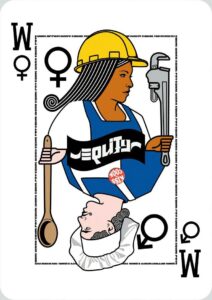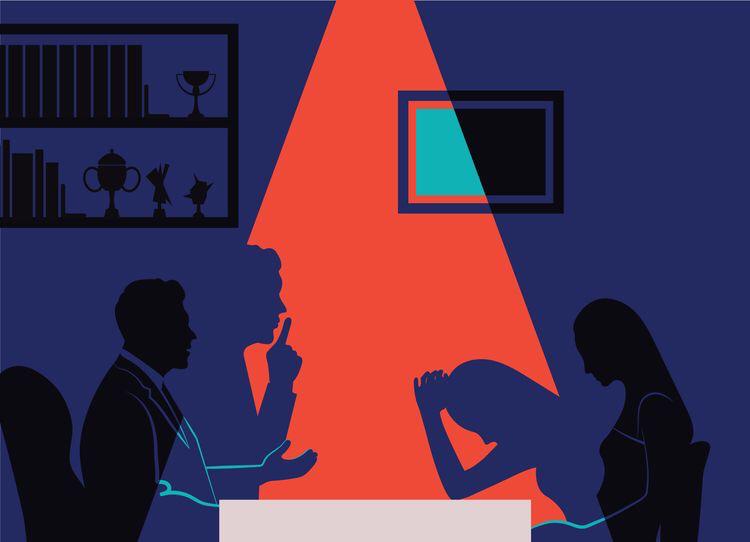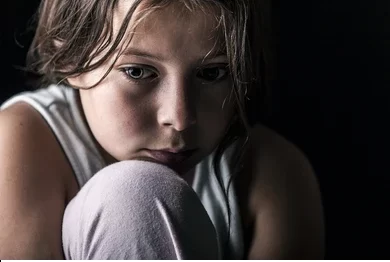
Growing up, back in high school we would be given debates topics along the lines of, ‘’a male child is better than a female child’’-debate!
Each party-the opposing and supporting sides would march forward to present their argument in a bid to convince the audience that their side of the argument is right.
With the benefit of hindsight, I have realized this debate topic is a total fallacy and unrealistic, to begin with, because no gender is superior or inferior to the other and this is being proven in every stratum of affairs today all around the globe.
Patriarchy is deep-rooted cancer in the Africa clime, especially amongst the older generation who believe and train their offspring with the perception that there is such thing as a superior gender and in this case, that the female gender is subordinate to the male gender. The false narrative sold to the younger generation at a different point in time invariably affects the behavior of men in relation to women in society beginning from the home. In a society where a statesman openly consoled wife battering and took side with the man, you can tell this is full-blown cancer.
The common gender-bias narrative play out in such scenario as the following;
-Fathers have uttered statements such as, ‘’ I would rather sponsor a male child to school because a female child will end up in her spouse’s kitchen’’
-Pestering women to give birth to a male heir as though there were ‘’baby-makers’’ , some men would even go as far as deserting their wives and in search of a male child from another woman – Appalling!
Such attitudes and utterances have fueled violence against women in the home and in the society at large.
The core existence of women in African clime has long been attached to that of a man, unsettling narratives such as ; dress properly or you won’t find a man to marry you, learn to cook else, your man would desert you, keep fit or else your marriage would be at stake, this narratives are wrong and need to stop being sold. Rather, women should dress decently to boost their confidence, women should learn to cook because it’s a basic life skill, women should hit the gym for the sake of their bodies.
Women in this age and time have defied all odds and continued to prove that if ever they are such thing as a superior gender, then, it should be them. Across the various fields of endeavors such as technology, sciences, humanities, politics & leadership, engineering, woman have and are heralding change and dismantling age-long false
narrative, propelling and empowering other women to do the same and not to settle for the narrative that they should be timid and unassertive or that their place belongs in a man’s kitchen thereby deferring their dreams.
Women can be all and more in any facet of their lives, they can achieve all they fathom in their minds to do- A gift of God to all mankind.
Unlearning the gender-bias narrative in Africa is a marathon, not a sprint.
Nevertheless, it’s a paramount responsibility and because families remain the first agent of change in any society, therefore, the unlearning begins from the home, caregivers have the responsibility of raising each gender equally and not give preferential treatment to any gender or perceive that there are gender-specific household roles.
Similarly, kids should be raised to inculcate the values of treating women with love and respect.
Education is both a fundamental right for all gender and a means of civilization- Policymakers have the responsibility of providing quality and possibly free education for both young and old citizens. Likewise, parents/caregivers should empower both male and female children through formal education.
Major reorientation in rural and modern communities through the media in various local languages should be aired on a constant basis so as to unlearn the false narrative.
All these action points would invariably manage gender-bias cancer in our society if not outrightly cure it.
eLegal foundation aims at providing rehabilitation and empowerment for girls and women of gender-based violence in Nigeria which therefore cushions the effect of gender bias in our society and ultimately bridge the gap of the gender superiority Narrative.
Have any comments?
Don’t forget to
Let us hear your view in the comment section below









